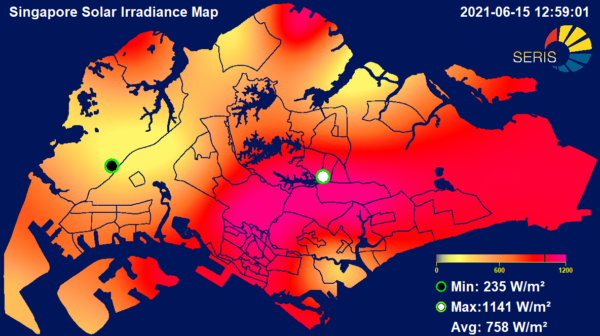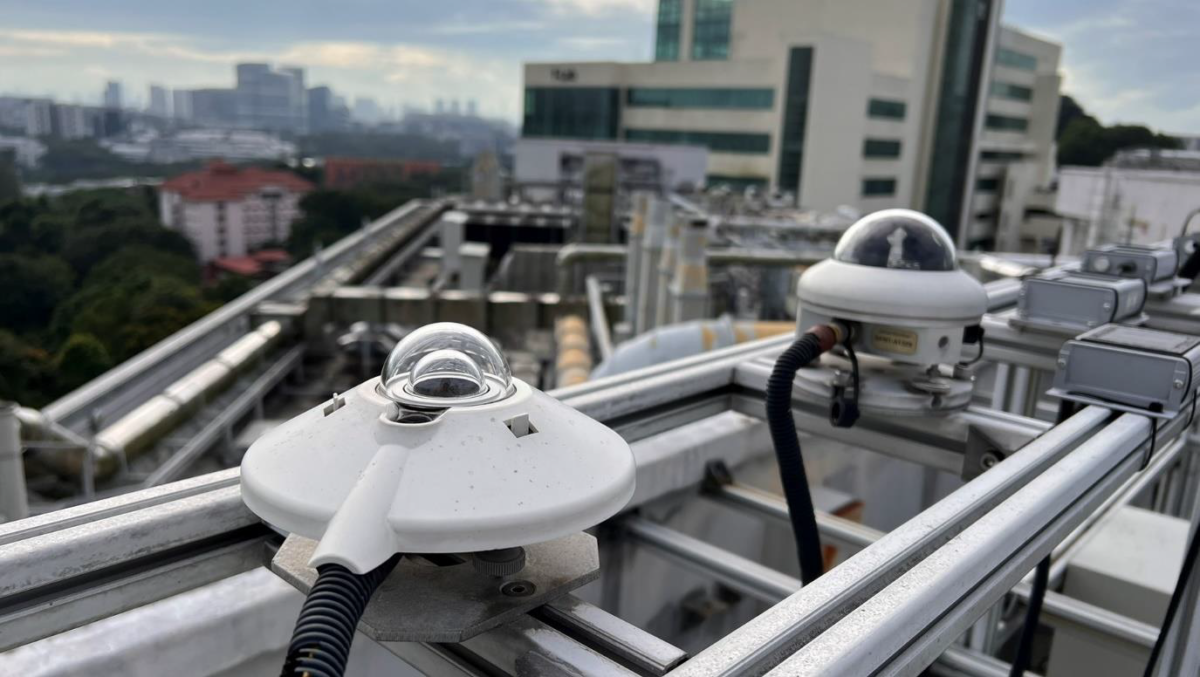The Solar Energy Research Institute of Singapore (SERIS) has wrapped up a year-long trial of a model that produces solar irradiance forecasts. It will now integrate it into the city-state’s energy management system.
SERIS said the trial showed that the system can predict island-wide irradiance up to one hour in advance, with an average error rate of less than 10%.
The model incorporates real-time irradiance data from sensors installed at various locations across Singapore, and can be combined with satellite imagery, weather data, and machine-learning algorithms. This information is aggregated to produce round-the-clock irradiance forecasting at regular intervals, from five minutes up to 24 hours ahead of time.

Image: SERIS
The trial has the support of Singapore’s Energy Market Authority (EMA), the meteorological service of Singapore, and the National Environment Agency. The EMA now plans to incorporate the model’s solar forecasts into its energy management system for the island.
“In tandem with the Singapore Green Plan 2030 and to advance Singapore’s energy transition, Singapore aims to deploy at least 2 GWp of solar capacity by 2030,” said EMA Chief Executive Ngiam Shih Chun. “A reliable solar forecasting model to predict solar irradiance, will enhance Singapore’s grid resilience and flexibility while supporting the deployment of additional solar capacity. This goes a long way in supporting our solar ambition and enhancing the resilience of our power grid.”
The EMA expects to fully incorporate the solar forecasts into its energy management system at some point in 2023. SERIS also sees potential for the model to be scaled up and applied to larger regions.
“Forecasting of solar irradiance is increasingly being required by Asian power grid operators from owners of large-scale solar power systems,” said SERIS Deputy CEO Thomas Reindl. “Therefore, the developed model has strong potential to be scaled up and commercialized to support the operations of solar farms across the region.”
This content is protected by copyright and may not be reused. If you want to cooperate with us and would like to reuse some of our content, please contact: editors@pv-magazine.com.




Use AI and this error will drop to 1-2% and with even better “shorter-longer” time periods.. but needs Training Data to cover the full Operating Region expected in Singapore..